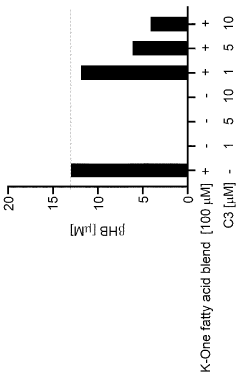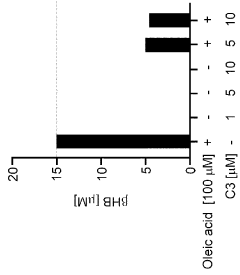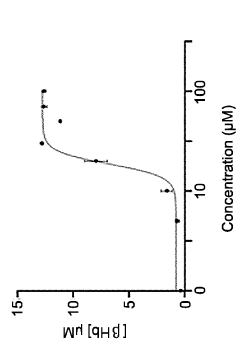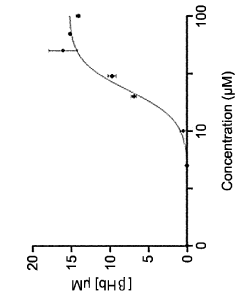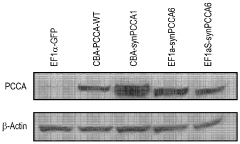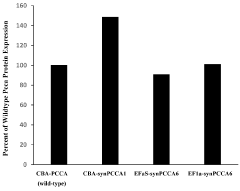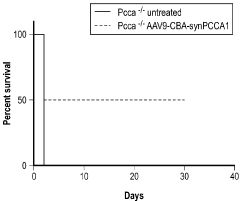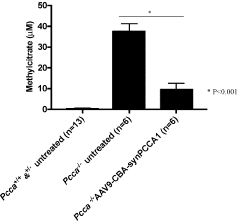Propionic Acid in Endocrine and Metabolic Health Research
JUL 3, 20259 MIN READ
Generate Your Research Report Instantly with AI Agent
Patsnap Eureka helps you evaluate technical feasibility & market potential.
Propionic Acid Background and Research Objectives
Propionic acid, a short-chain fatty acid (SCFA), has gained significant attention in recent years due to its potential role in endocrine and metabolic health. This compound, naturally produced by gut microbiota through the fermentation of dietary fibers, has been the subject of extensive research aimed at understanding its physiological effects and therapeutic potential.
The historical context of propionic acid research dates back to the early 20th century when it was first identified as a metabolic byproduct. However, its importance in human health only began to emerge in the late 1990s and early 2000s, coinciding with the growing interest in the gut microbiome and its impact on overall health. This shift in focus has led to a surge in studies exploring the multifaceted effects of propionic acid on various physiological systems.
In recent years, the scientific community has witnessed a paradigm shift in understanding the gut-brain axis and the role of microbial metabolites in regulating host metabolism. Propionic acid has emerged as a key player in this complex interplay, with research suggesting its involvement in glucose homeostasis, lipid metabolism, and appetite regulation. These findings have opened up new avenues for investigating propionic acid as a potential therapeutic target for metabolic disorders such as obesity and type 2 diabetes.
The current research landscape surrounding propionic acid is characterized by a multidisciplinary approach, combining insights from microbiology, endocrinology, and metabolic science. This integrative perspective has led to the development of novel hypotheses regarding the mechanisms through which propionic acid influences endocrine function and metabolic processes.
As we delve deeper into the research on propionic acid in endocrine and metabolic health, our primary objectives are threefold. First, we aim to elucidate the precise mechanisms by which propionic acid modulates hormone secretion and signaling pathways in various endocrine tissues. Second, we seek to quantify the impact of propionic acid on key metabolic parameters, including insulin sensitivity, energy expenditure, and lipid metabolism. Lastly, we intend to explore the potential of propionic acid as a therapeutic agent or biomarker for metabolic disorders.
These research goals are driven by the growing global burden of metabolic diseases and the urgent need for novel interventions. By advancing our understanding of propionic acid's role in endocrine and metabolic health, we hope to pave the way for innovative strategies in disease prevention and treatment, ultimately contributing to improved public health outcomes.
The historical context of propionic acid research dates back to the early 20th century when it was first identified as a metabolic byproduct. However, its importance in human health only began to emerge in the late 1990s and early 2000s, coinciding with the growing interest in the gut microbiome and its impact on overall health. This shift in focus has led to a surge in studies exploring the multifaceted effects of propionic acid on various physiological systems.
In recent years, the scientific community has witnessed a paradigm shift in understanding the gut-brain axis and the role of microbial metabolites in regulating host metabolism. Propionic acid has emerged as a key player in this complex interplay, with research suggesting its involvement in glucose homeostasis, lipid metabolism, and appetite regulation. These findings have opened up new avenues for investigating propionic acid as a potential therapeutic target for metabolic disorders such as obesity and type 2 diabetes.
The current research landscape surrounding propionic acid is characterized by a multidisciplinary approach, combining insights from microbiology, endocrinology, and metabolic science. This integrative perspective has led to the development of novel hypotheses regarding the mechanisms through which propionic acid influences endocrine function and metabolic processes.
As we delve deeper into the research on propionic acid in endocrine and metabolic health, our primary objectives are threefold. First, we aim to elucidate the precise mechanisms by which propionic acid modulates hormone secretion and signaling pathways in various endocrine tissues. Second, we seek to quantify the impact of propionic acid on key metabolic parameters, including insulin sensitivity, energy expenditure, and lipid metabolism. Lastly, we intend to explore the potential of propionic acid as a therapeutic agent or biomarker for metabolic disorders.
These research goals are driven by the growing global burden of metabolic diseases and the urgent need for novel interventions. By advancing our understanding of propionic acid's role in endocrine and metabolic health, we hope to pave the way for innovative strategies in disease prevention and treatment, ultimately contributing to improved public health outcomes.
Market Analysis for Propionic Acid in Health Products
The market for propionic acid in health products has been experiencing significant growth in recent years, driven by increasing consumer awareness of its potential benefits in endocrine and metabolic health. This short-chain fatty acid, naturally produced by gut bacteria, has garnered attention for its role in maintaining a healthy gut microbiome and its potential impact on various metabolic processes.
The global market for propionic acid in health products is primarily segmented into dietary supplements, functional foods, and beverages. The dietary supplement segment currently holds the largest market share, with consumers seeking propionic acid supplements for potential weight management, blood sugar regulation, and overall gut health benefits. Functional foods and beverages infused with propionic acid or its precursors are also gaining traction, particularly among health-conscious consumers looking for convenient ways to incorporate beneficial compounds into their daily diets.
Geographically, North America and Europe lead the market for propionic acid health products, owing to higher consumer awareness and disposable income. However, the Asia-Pacific region is expected to witness the fastest growth in the coming years, driven by increasing health consciousness and a rising middle-class population in countries like China and India.
The market is characterized by a growing number of product launches featuring propionic acid or its derivatives. These products often target specific health concerns such as obesity, diabetes, and inflammatory bowel diseases. The increasing prevalence of these conditions in developed and developing countries alike is expected to fuel market growth in the foreseeable future.
Key market players include established nutraceutical companies, as well as emerging startups focusing on microbiome-based health solutions. These companies are investing in research and development to explore new applications of propionic acid in endocrine and metabolic health, as well as to improve product formulations and bioavailability.
Despite the promising growth prospects, the market faces challenges such as regulatory hurdles and the need for more extensive clinical research to substantiate health claims. Additionally, consumer education remains a crucial factor in driving market expansion, as many potential users are still unfamiliar with the benefits of propionic acid in health products.
Looking ahead, the market for propionic acid in health products is poised for continued growth. Factors such as the increasing focus on preventive healthcare, rising incidence of metabolic disorders, and growing interest in gut health are expected to drive demand. As research in this field progresses, new applications and product innovations are likely to emerge, further expanding the market potential for propionic acid in endocrine and metabolic health products.
The global market for propionic acid in health products is primarily segmented into dietary supplements, functional foods, and beverages. The dietary supplement segment currently holds the largest market share, with consumers seeking propionic acid supplements for potential weight management, blood sugar regulation, and overall gut health benefits. Functional foods and beverages infused with propionic acid or its precursors are also gaining traction, particularly among health-conscious consumers looking for convenient ways to incorporate beneficial compounds into their daily diets.
Geographically, North America and Europe lead the market for propionic acid health products, owing to higher consumer awareness and disposable income. However, the Asia-Pacific region is expected to witness the fastest growth in the coming years, driven by increasing health consciousness and a rising middle-class population in countries like China and India.
The market is characterized by a growing number of product launches featuring propionic acid or its derivatives. These products often target specific health concerns such as obesity, diabetes, and inflammatory bowel diseases. The increasing prevalence of these conditions in developed and developing countries alike is expected to fuel market growth in the foreseeable future.
Key market players include established nutraceutical companies, as well as emerging startups focusing on microbiome-based health solutions. These companies are investing in research and development to explore new applications of propionic acid in endocrine and metabolic health, as well as to improve product formulations and bioavailability.
Despite the promising growth prospects, the market faces challenges such as regulatory hurdles and the need for more extensive clinical research to substantiate health claims. Additionally, consumer education remains a crucial factor in driving market expansion, as many potential users are still unfamiliar with the benefits of propionic acid in health products.
Looking ahead, the market for propionic acid in health products is poised for continued growth. Factors such as the increasing focus on preventive healthcare, rising incidence of metabolic disorders, and growing interest in gut health are expected to drive demand. As research in this field progresses, new applications and product innovations are likely to emerge, further expanding the market potential for propionic acid in endocrine and metabolic health products.
Current State and Challenges in Propionic Acid Research
Propionic acid research in the context of endocrine and metabolic health has made significant strides in recent years, yet it faces several challenges that hinder its full potential. Currently, the field is characterized by a growing body of evidence suggesting propionic acid's role in glucose metabolism, appetite regulation, and gut-brain axis communication. Studies have demonstrated its ability to stimulate the release of gut hormones, such as GLP-1 and PYY, which are crucial in appetite control and insulin sensitivity.
However, the precise mechanisms by which propionic acid influences these metabolic processes remain incompletely understood. This gap in knowledge presents a significant challenge for researchers aiming to harness its therapeutic potential. Moreover, the complex interplay between propionic acid, the gut microbiome, and host metabolism adds another layer of complexity to the research landscape.
One of the primary technical hurdles in propionic acid research is the difficulty in accurately measuring its concentrations in various biological compartments. Current analytical methods often lack the sensitivity and specificity required to detect physiologically relevant changes in propionic acid levels, particularly in blood and tissues. This limitation hampers efforts to establish clear dose-response relationships and elucidate its pharmacokinetics.
Another challenge lies in the delivery and targeting of propionic acid to specific tissues or organs. While oral administration is common, it faces issues with bioavailability and potential side effects in the gastrointestinal tract. Developing novel delivery systems that can ensure targeted and sustained release of propionic acid remains an active area of research.
The field also grapples with translating in vitro and animal model findings to human physiology. While preclinical studies have shown promising results, human clinical trials are limited and often yield inconsistent outcomes. This discrepancy highlights the need for more robust, well-designed human studies to validate the metabolic effects of propionic acid observed in experimental models.
Furthermore, the long-term safety and efficacy of propionic acid supplementation or modulation in humans remain uncertain. As research progresses towards potential therapeutic applications, addressing these safety concerns becomes paramount. This includes investigating potential interactions with other medications, effects on the gut microbiome composition, and any unintended consequences on overall metabolic health.
Lastly, the regulatory landscape surrounding propionic acid as a potential therapeutic agent or dietary supplement is still evolving. Researchers and industry stakeholders face challenges in navigating the regulatory requirements for clinical trials and product development, particularly given its dual nature as both a naturally occurring metabolite and a potential pharmaceutical agent.
However, the precise mechanisms by which propionic acid influences these metabolic processes remain incompletely understood. This gap in knowledge presents a significant challenge for researchers aiming to harness its therapeutic potential. Moreover, the complex interplay between propionic acid, the gut microbiome, and host metabolism adds another layer of complexity to the research landscape.
One of the primary technical hurdles in propionic acid research is the difficulty in accurately measuring its concentrations in various biological compartments. Current analytical methods often lack the sensitivity and specificity required to detect physiologically relevant changes in propionic acid levels, particularly in blood and tissues. This limitation hampers efforts to establish clear dose-response relationships and elucidate its pharmacokinetics.
Another challenge lies in the delivery and targeting of propionic acid to specific tissues or organs. While oral administration is common, it faces issues with bioavailability and potential side effects in the gastrointestinal tract. Developing novel delivery systems that can ensure targeted and sustained release of propionic acid remains an active area of research.
The field also grapples with translating in vitro and animal model findings to human physiology. While preclinical studies have shown promising results, human clinical trials are limited and often yield inconsistent outcomes. This discrepancy highlights the need for more robust, well-designed human studies to validate the metabolic effects of propionic acid observed in experimental models.
Furthermore, the long-term safety and efficacy of propionic acid supplementation or modulation in humans remain uncertain. As research progresses towards potential therapeutic applications, addressing these safety concerns becomes paramount. This includes investigating potential interactions with other medications, effects on the gut microbiome composition, and any unintended consequences on overall metabolic health.
Lastly, the regulatory landscape surrounding propionic acid as a potential therapeutic agent or dietary supplement is still evolving. Researchers and industry stakeholders face challenges in navigating the regulatory requirements for clinical trials and product development, particularly given its dual nature as both a naturally occurring metabolite and a potential pharmaceutical agent.
Existing Applications of Propionic Acid in Health
01 Production methods of propionic acid
Various methods for producing propionic acid are described, including fermentation processes, chemical synthesis routes, and catalytic reactions. These methods aim to improve yield, efficiency, and purity of propionic acid production for industrial applications.- Production methods of propionic acid: Various methods for producing propionic acid are described, including fermentation processes, chemical synthesis routes, and catalytic reactions. These methods aim to improve yield, efficiency, and purity of propionic acid production for industrial applications.
- Applications of propionic acid in food preservation: Propionic acid and its salts are widely used as food preservatives due to their antimicrobial properties. They are effective in preventing mold growth and extending the shelf life of various food products, particularly in bakery items and dairy products.
- Use of propionic acid in pharmaceutical formulations: Propionic acid and its derivatives are utilized in pharmaceutical formulations for various purposes, including as active ingredients, excipients, or pH adjusters. They may be incorporated into topical, oral, or injectable medications for different therapeutic applications.
- Industrial applications of propionic acid: Propionic acid finds diverse industrial applications beyond food and pharmaceuticals. It is used in the production of plastics, herbicides, and other chemicals. The acid and its derivatives serve as intermediates in various chemical processes and manufacturing industries.
- Purification and analysis methods for propionic acid: Various techniques for purifying and analyzing propionic acid are described. These include distillation processes, chromatographic methods, and spectroscopic techniques to ensure high purity and quality control in propionic acid production and usage.
02 Applications of propionic acid in food preservation
Propionic acid and its salts are widely used as food preservatives due to their antimicrobial properties. They are effective against molds and bacteria, extending the shelf life of various food products, particularly in bakery goods and dairy products.Expand Specific Solutions03 Use of propionic acid in pharmaceutical formulations
Propionic acid and its derivatives find applications in pharmaceutical formulations. They are used as excipients, pH adjusters, and in some cases, as active pharmaceutical ingredients for various therapeutic purposes.Expand Specific Solutions04 Industrial applications of propionic acid
Propionic acid has diverse industrial applications beyond food and pharmaceuticals. It is used in the production of plastics, herbicides, and as a chemical intermediate in various manufacturing processes. The acid's properties make it valuable in multiple industries.Expand Specific Solutions05 Environmental and safety considerations in propionic acid handling
The handling, storage, and disposal of propionic acid require specific safety measures due to its corrosive nature and potential environmental impact. Proper containment, neutralization techniques, and waste management strategies are essential for safe industrial use of propionic acid.Expand Specific Solutions
Key Players in Propionic Acid Research and Production
The research on propionic acid in endocrine and metabolic health is in an early developmental stage, with a growing market potential due to increasing interest in gut-microbiome interactions and metabolic disorders. The competitive landscape is diverse, involving academic institutions like Jiangnan University and Dana-Farber Cancer Institute, as well as pharmaceutical companies such as AstraZeneca and Nutricia. The technology is still emerging, with varying levels of maturity across different applications. Companies like Arla Foods and Shenzhen Chipscreen Biosciences are exploring potential commercial applications, while research institutions continue to advance fundamental understanding. As the field progresses, collaborations between academia and industry are likely to accelerate technological advancements and market growth.
AstraZeneca AB
Technical Solution: AstraZeneca AB is conducting extensive research on propionic acid's role in endocrine and metabolic health, particularly in the context of diabetes and cardiovascular diseases. Their approach integrates propionic acid into their broader metabolomics research platform, which aims to identify novel biomarkers and therapeutic targets[7]. The company is investigating how propionic acid, as a short-chain fatty acid produced by gut microbiota, influences glucose metabolism, insulin sensitivity, and lipid profiles. They are developing potential therapeutic interventions that modulate propionic acid levels or its signaling pathways to improve metabolic outcomes[8]. AstraZeneca's research also extends to exploring the interplay between propionic acid, the gut microbiome, and the endocrine system, with a focus on how these interactions may be leveraged to develop new treatments for metabolic disorders[9].
Strengths: Comprehensive research capabilities; strong pipeline in metabolic diseases; global reach for clinical trials. Weaknesses: High competition in the metabolic disease space; potential for long development timelines for novel mechanisms.
Nutricia NV
Technical Solution: Nutricia NV, a specialized nutrition company, is conducting research on propionic acid in the context of nutritional interventions for endocrine and metabolic health. Their focus is on developing medical nutrition products that can modulate gut microbiota composition and function, thereby influencing propionic acid production and its metabolic effects[10]. The company is investigating how dietary interventions, including prebiotic fibers and specific nutrient combinations, can enhance propionic acid production by gut bacteria and its subsequent impact on glucose homeostasis and lipid metabolism[11]. Nutricia's research also extends to the potential benefits of propionic acid in early life nutrition, exploring its role in metabolic programming and long-term endocrine health outcomes. They are developing specialized formulas and nutritional supplements that aim to optimize propionic acid levels for various life stages and health conditions[12].
Strengths: Expertise in nutritional science and product development; focus on non-pharmacological interventions. Weaknesses: Limited to nutritional approaches; may face challenges in demonstrating clear clinical efficacy compared to pharmaceutical interventions.
Key Innovations in Propionic Acid Metabolism Studies
Use of propionate for decreasing ketone production
PatentWO2023166071A1
Innovation
- The use of propionic acid in therapeutically effective amounts to decrease ketone production and prevent or treat ketoacidosis by reducing plasma ketone levels, thereby addressing the underlying metabolic derangements without harming cellular viability.
Improved gene therapy constructs for the treatment of propionic acidemia caused by mutations in propionyl-COA carboxylase alpha
PatentWO2023130003A2
Innovation
- Development of a polynucleotide expression cassette comprising a synthetic PCCA polynucleotide with optimized codon usage and reduced CpG dinucleotides and restriction enzyme recognition sites, delivered via recombinant adeno-associated viruses (rAAVs) for gene therapy to enhance PCC expression and activity.
Regulatory Framework for Propionic Acid in Supplements
The regulatory framework for propionic acid in supplements is a complex and evolving landscape that varies across different jurisdictions. In the United States, the Food and Drug Administration (FDA) oversees the regulation of dietary supplements, including those containing propionic acid. Under the Dietary Supplement Health and Education Act (DSHEA) of 1994, propionic acid is generally recognized as safe (GRAS) when used as a preservative in food products.
However, its use in dietary supplements is subject to specific guidelines and limitations. Manufacturers must ensure that their products are safe, properly labeled, and do not make unsubstantiated health claims. The FDA requires that supplement labels include a complete list of ingredients, serving size, and any potential allergens.
In the European Union, the European Food Safety Authority (EFSA) is responsible for evaluating the safety of food additives and supplements. Propionic acid and its salts are approved as food additives (E280-E283) with specific maximum levels for various food categories. For use in supplements, manufacturers must comply with the EU Food Supplements Directive (2002/46/EC) and provide scientific evidence of safety and efficacy.
The regulatory landscape becomes more complex when considering the global market. Countries like Japan, Australia, and Canada have their own regulatory bodies and frameworks for dietary supplements. In Japan, for instance, the Ministry of Health, Labour and Welfare regulates "Foods with Function Claims," which may include propionic acid-containing supplements.
Manufacturers seeking to market propionic acid supplements internationally must navigate these diverse regulatory environments. This often involves conducting safety assessments, quality control measures, and sometimes clinical trials to demonstrate efficacy and safety. Additionally, they must adhere to Good Manufacturing Practices (GMP) to ensure product quality and consistency.
As research on propionic acid's role in endocrine and metabolic health progresses, regulatory bodies may update their guidelines. This could potentially lead to new opportunities for supplement formulations or restrictions based on emerging scientific evidence. Manufacturers and researchers must stay informed about these regulatory changes to ensure compliance and capitalize on new developments in the field.
However, its use in dietary supplements is subject to specific guidelines and limitations. Manufacturers must ensure that their products are safe, properly labeled, and do not make unsubstantiated health claims. The FDA requires that supplement labels include a complete list of ingredients, serving size, and any potential allergens.
In the European Union, the European Food Safety Authority (EFSA) is responsible for evaluating the safety of food additives and supplements. Propionic acid and its salts are approved as food additives (E280-E283) with specific maximum levels for various food categories. For use in supplements, manufacturers must comply with the EU Food Supplements Directive (2002/46/EC) and provide scientific evidence of safety and efficacy.
The regulatory landscape becomes more complex when considering the global market. Countries like Japan, Australia, and Canada have their own regulatory bodies and frameworks for dietary supplements. In Japan, for instance, the Ministry of Health, Labour and Welfare regulates "Foods with Function Claims," which may include propionic acid-containing supplements.
Manufacturers seeking to market propionic acid supplements internationally must navigate these diverse regulatory environments. This often involves conducting safety assessments, quality control measures, and sometimes clinical trials to demonstrate efficacy and safety. Additionally, they must adhere to Good Manufacturing Practices (GMP) to ensure product quality and consistency.
As research on propionic acid's role in endocrine and metabolic health progresses, regulatory bodies may update their guidelines. This could potentially lead to new opportunities for supplement formulations or restrictions based on emerging scientific evidence. Manufacturers and researchers must stay informed about these regulatory changes to ensure compliance and capitalize on new developments in the field.
Safety and Toxicology of Propionic Acid Consumption
Propionic acid, a short-chain fatty acid, has been widely used in food preservation and as a dietary supplement. However, its safety and potential toxicological effects must be thoroughly evaluated to ensure its appropriate use in endocrine and metabolic health applications.
Acute toxicity studies have shown that propionic acid has relatively low toxicity when ingested orally. The LD50 (median lethal dose) for rats is reported to be around 3500-4200 mg/kg body weight. However, at high concentrations, it can cause irritation to the gastrointestinal tract, leading to nausea, vomiting, and abdominal pain.
Chronic exposure to propionic acid has been investigated in animal studies. Long-term dietary administration of propionic acid to rats at levels up to 4% of their diet did not result in significant adverse effects on growth, food consumption, or organ weights. However, some studies have reported mild changes in liver enzyme levels and histopathological alterations in the liver at higher doses.
The potential genotoxicity of propionic acid has been evaluated using various in vitro and in vivo assays. Most studies have found no evidence of mutagenic or clastogenic activity, suggesting that propionic acid does not pose a significant genotoxic risk.
Reproductive and developmental toxicity studies have shown mixed results. While some studies reported no adverse effects on fertility or fetal development, others have observed slight decreases in fetal body weight and delayed ossification at high doses. These findings highlight the need for caution when considering propionic acid supplementation during pregnancy.
Regarding endocrine disruption potential, limited studies have been conducted. Some research suggests that propionic acid may influence hormone levels, particularly insulin and glucagon, but the long-term implications of these effects on endocrine health require further investigation.
The safety of propionic acid in humans has been evaluated through its long history of use as a food preservative. The Joint FAO/WHO Expert Committee on Food Additives (JECFA) has established an acceptable daily intake (ADI) of 0-30 mg/kg body weight for propionic acid and its salts. This ADI is based on the no-observed-adverse-effect level (NOAEL) derived from long-term animal studies.
While propionic acid is generally recognized as safe (GRAS) by regulatory agencies, it is essential to consider potential interactions with medications or pre-existing health conditions. Individuals with compromised liver or kidney function may be more susceptible to adverse effects and should exercise caution when consuming propionic acid supplements.
In conclusion, while propionic acid appears to have a relatively favorable safety profile, further research is needed to fully elucidate its long-term effects on endocrine and metabolic health. As with any dietary supplement, it is crucial to adhere to recommended dosages and consult healthcare professionals before incorporating propionic acid into one's regimen, especially for individuals with underlying health conditions or those in sensitive populations.
Acute toxicity studies have shown that propionic acid has relatively low toxicity when ingested orally. The LD50 (median lethal dose) for rats is reported to be around 3500-4200 mg/kg body weight. However, at high concentrations, it can cause irritation to the gastrointestinal tract, leading to nausea, vomiting, and abdominal pain.
Chronic exposure to propionic acid has been investigated in animal studies. Long-term dietary administration of propionic acid to rats at levels up to 4% of their diet did not result in significant adverse effects on growth, food consumption, or organ weights. However, some studies have reported mild changes in liver enzyme levels and histopathological alterations in the liver at higher doses.
The potential genotoxicity of propionic acid has been evaluated using various in vitro and in vivo assays. Most studies have found no evidence of mutagenic or clastogenic activity, suggesting that propionic acid does not pose a significant genotoxic risk.
Reproductive and developmental toxicity studies have shown mixed results. While some studies reported no adverse effects on fertility or fetal development, others have observed slight decreases in fetal body weight and delayed ossification at high doses. These findings highlight the need for caution when considering propionic acid supplementation during pregnancy.
Regarding endocrine disruption potential, limited studies have been conducted. Some research suggests that propionic acid may influence hormone levels, particularly insulin and glucagon, but the long-term implications of these effects on endocrine health require further investigation.
The safety of propionic acid in humans has been evaluated through its long history of use as a food preservative. The Joint FAO/WHO Expert Committee on Food Additives (JECFA) has established an acceptable daily intake (ADI) of 0-30 mg/kg body weight for propionic acid and its salts. This ADI is based on the no-observed-adverse-effect level (NOAEL) derived from long-term animal studies.
While propionic acid is generally recognized as safe (GRAS) by regulatory agencies, it is essential to consider potential interactions with medications or pre-existing health conditions. Individuals with compromised liver or kidney function may be more susceptible to adverse effects and should exercise caution when consuming propionic acid supplements.
In conclusion, while propionic acid appears to have a relatively favorable safety profile, further research is needed to fully elucidate its long-term effects on endocrine and metabolic health. As with any dietary supplement, it is crucial to adhere to recommended dosages and consult healthcare professionals before incorporating propionic acid into one's regimen, especially for individuals with underlying health conditions or those in sensitive populations.
Unlock deeper insights with Patsnap Eureka Quick Research — get a full tech report to explore trends and direct your research. Try now!
Generate Your Research Report Instantly with AI Agent
Supercharge your innovation with Patsnap Eureka AI Agent Platform!
